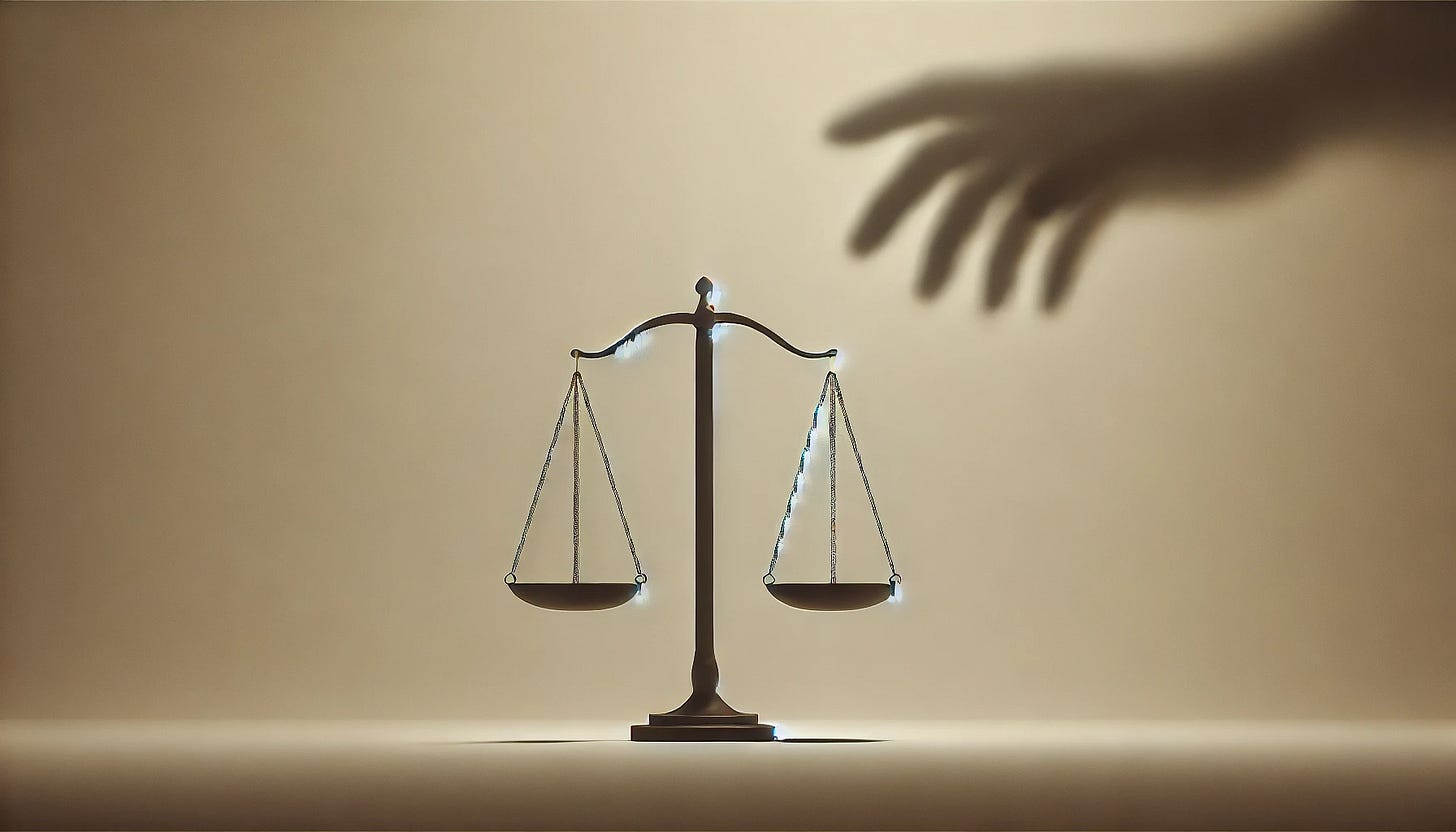The Myth of Objectivity: Why We Need to Talk About Judicial Bias
Let’s have a talk about the justice system—specifically in the context of Western societies—and the enormous influence a single judge’s personal perspective can have on real-world outcomes. While the courts are often held up as impartial arbiters of truth and fairness, we all know that there’s a fundamental tension between the ideal of “blind justice” and the reality of individual human biases. And that disconnect is probably deserving of way more debate than it’s getting. Moreover, our justice function is not exactly known for embracing change and innovation. Time for a chat.
Why Judges’ Perspectives Matter So Much
Judges aren’t robots—although the legal system often wants to treat them as such. They come from certain backgrounds, have certain ideologies, and carry their own life experiences into the courtroom. Look at a bunch of high-profile cases from any Western country, and you’ll notice that different judges can deliver significantly different rulings under seemingly similar circumstances.
From one angle, this variety can be a strength; you get different interpretations of the law that can reflect a wide range of public values. But from another angle, it’s a serious weakness—it can lead to inconsistent rulings and the perception that your verdict depends more on which judge you end up with than on the facts of the case. That erodes trust in the justice system.
The Role of Legal Training
Most Western legal systems try to minimize these personal biases through years of rigorous education. Lawyers, and eventually judges, spend countless hours learning legal precedents, studying statutory interpretation, and honing their analytical thinking in a structured way. In theory, all this training is supposed to produce professionals who can bracket their personal experiences, treat all cases with the same dispassionate logic, and remain objective.
But no matter how hard we try, law school doesn’t erase someone’s background or moral compass. Those personal perspectives inevitably show up when you’re interpreting ambiguous statutes or applying case law to unique fact patterns. The training helps, but it doesn’t overwrite human nature.
Bias in Practice
Bias doesn’t always mean “prejudice” in the malicious sense. Sometimes it’s subtle—maybe a judge has a deep-seated belief in individual responsibility, so they tend to hand down harsher sentences for repeat offenders. Or perhaps they had a rough upbringing, which leads them to empathize more strongly with defendants facing certain social circumstances. Over time, these little leanings add up.
You can see the influence of personal perspective in everything from sentencing decisions to the interpretation of constitutional principles. Certain judges lean more liberal or conservative, more lenient or strict, and while that’s perfectly legal, it might not always be perfectly fair.
Why We Need More Debate
So, if we accept the premise that judges are people, not disembodied fonts of universal wisdom, what should we do about it? There’s an ongoing debate about whether we should:
1. Institute stronger checks and balances on judges, possibly through more robust appeals processes or review boards.
2. Improve judicial diversity so that courts reflect a variety of backgrounds, which might dilute the risk of one dominant perspective.
3. Embrace the subjectivity as an inevitable part of a human-run system—highlighting the importance of transparency in judges’ reasoning rather than trying to make them less human.
Right now, this conversation mostly pops up around hot-button topics—like supreme court appointments, or the sentencing disparities related to race or class. But these discussions should be a regular part of the public discourse on the justice system. It’s not just about who gets to serve on the highest court or who’s convicted of a sensational crime; it’s about every mundane court case that sets a precedent for the next one.
Where Do We Go From Here?
Western societies pride themselves on the rule of law—on a set of rules, grounded in shared values, that apply to everyone equally. It’s a noble goal. But if we don’t grapple with the reality that the interpreters of those rules are human—and thus have subjective views and biases—then we risk losing faith in that system.
So maybe the next time we talk about judicial reform, we could skip the platitudes about “blind justice” and tackle the harder questions: How do we handle the inherent subjectivity of judges? How can legal training be improved to mitigate—though never fully eliminate—human bias? And is there a point where the quest for perfect objectivity becomes so quixotic that we need a different framework for accountability?
None of these questions have easy answers, but they’re crucial if we want people to keep trusting a system that quite literally holds their futures in its hands. Let’s keep the conversation going, and hopefully, we can come up with a justice system that’s more transparent, more consistent, and maybe just a little bit fairer for everyone.
Ah, yes, there is also this new kid on the block, they call artificial intelligence - but let’s keep that for another day.


